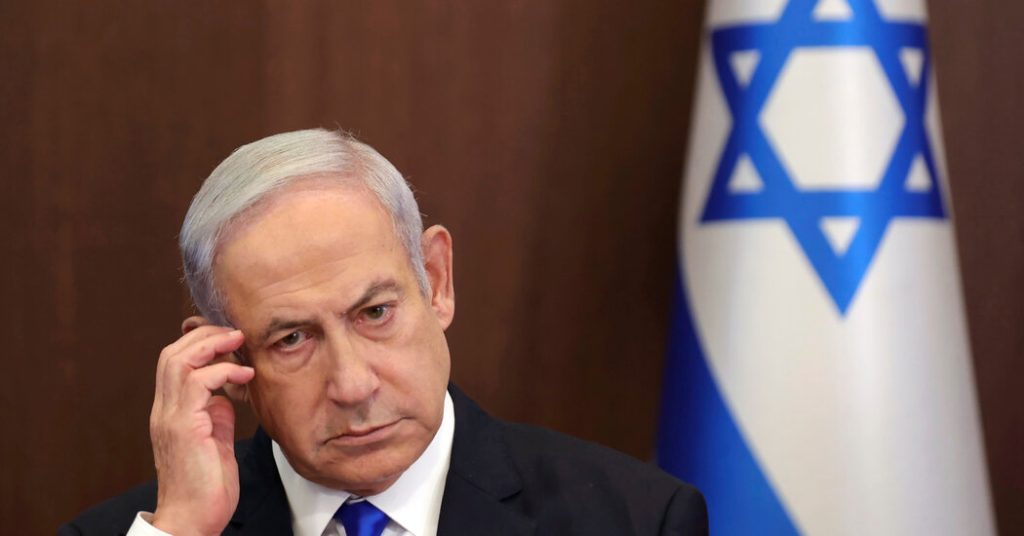Prime Minister Benjamin Netanyahu of Israel will be undergoing surgery for a hernia on Sunday evening. This comes at a difficult time for the prime minister as international pressure for a cease-fire in the ongoing conflict in Gaza continues to mount. The surgery was deemed necessary after Mr. Netanyahu was diagnosed with a hernia during a routine examination on Saturday night. The operation will be conducted under full anesthesia and Justice Minister Yariv Levin will temporarily assume the prime minister’s duties during his recovery.
Criticism of Mr. Netanyahu’s handling of the conflict in Gaza has been intensifying both internationally and domestically. Allies like the United States have voiced concerns over the high civilian casualties and urged Israel to allow more aid into the region. Meanwhile, protesters in Israel have been calling for prioritizing the release of hostages held in Gaza and negotiating a cease-fire. The war cabinet is set to convene to discuss ongoing cease-fire negotiations, though it remains unclear if Mr. Netanyahu will be able to attend due to the surgery.
Despite facing criticism, Mr. Netanyahu met with families of soldiers held captive in Gaza just hours before his operation. The prime minister’s far-right coalition partners have also scrutinized any perceived hesitation in the conflict with Hamas or the expansion of Israeli settlements in the West Bank. These tensions have further complicated Mr. Netanyahu’s position as he prepares for surgery and delegating his responsibilities to Justice Minister Yariv Levin.
The timing of Mr. Netanyahu’s surgery adds another layer of complexity to his leadership during the ongoing crisis in Gaza. While his health issue is unrelated to the conflict, the operation requires him to temporarily step back from his duties as prime minister. Justice Minister Yariv Levin, a trusted ally within the Likud party, will assume responsibilities in Mr. Netanyahu’s absence. This transition comes as critical decisions are being made regarding the conflict and cease-fire negotiations.
As the war in Gaza continues and international pressure for a cease-fire grows, Mr. Netanyahu’s absence due to surgery will leave a temporary leadership vacuum. The decision to undergo surgery despite the demands of his role reflects the personal and health challenges faced by the prime minister. The operation, although necessary, adds another layer of uncertainty and instability to an already volatile situation in the region.
Overall, the timing of Mr. Netanyahu’s surgery underscores the challenges faced by leaders during times of crises. As he undergoes medical treatment, the prime minister’s absence may impact the decision-making process and negotiations surrounding the conflict in Gaza. However, the temporary transfer of responsibilities to Justice Minister Yariv Levin ensures continuity in the governmental operations while Mr. Netanyahu focuses on his recovery.


